Did you know that you can use a WordPress weather widget to show the local weather? While this may not seem very useful since just about everyone has a weather app on their phone, it can be a nice addition to boost your local SEO.
The advantages of displaying the weather vary and rely greatly on your business. For example, the weather may not mean much to a grocery store, but for an outdoor rock climbing center, it’s pretty important.
Perhaps you’re targeting people who want to visit your local area from out of town. A display of the weather can let them know what to expect. Which can be ideal for hotels, tourists attractions and more.
Today, I will demonstrate how to add a WordPress weather widget using the Awesome Weather Widget plugin.
SEO Vs. Local SEO
Search engine optimization, or SEO, dictates how highly you will rank on search engines like Google. However, what’s often left out is what local SEO is.
Local SEO is how well you rank in your local area.
For example, let’s say you need to find a plumber. Typically you would search “Plumber, your city” or perhaps, “plumber near me” and Google will show you all of the plumbers in your area. However, what people don’t know is that if you just type in “Plumber”, Google will still show you, local plumbers.
Why is that?
Well like it or not, Google knows where you are. It also understands that if you live in North Carolina, you are definitely not looking for a plumber in California. Thus, your actual SEO is far less valuable than your local SEO in these cases.
If you run a local business, local SEO is probably going to be more important to you and displaying the weather can help you boost that stat.
Installing Awesome Weather Widget
Awesome Weather Widget is a free weather plugin for that is well…awesome! As the name implies, it allows you to add a weather widget in WordPress. But the reason it is awesome is because of the number of styles you can choose from. These options make it easy to seamlessly add the widget to your website.
And of course, since this plugin only requires you to add a widget, it’s perfect for any skill level.
Begin by clicking on Plugins and selecting the Add New option on the left-hand admin panel.
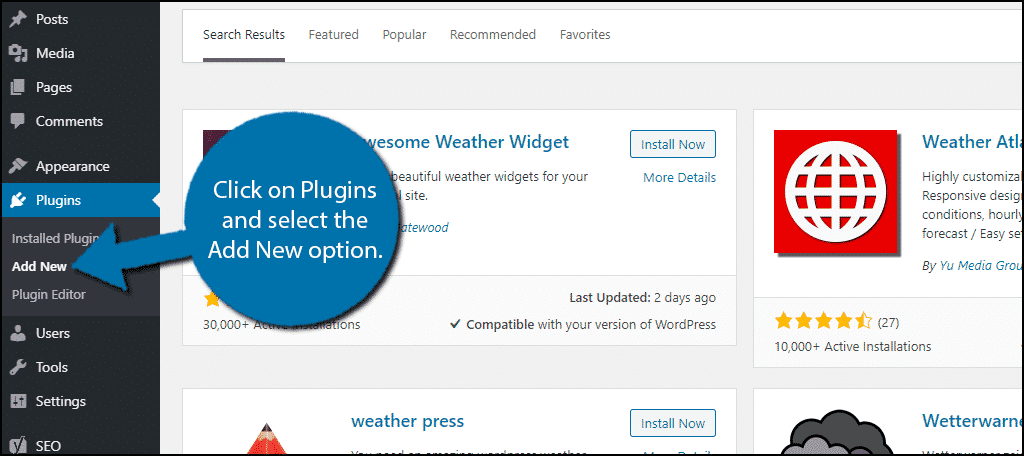
Search for Awesome Weather Widget in the available search box. This will pull up additional plugins that you may find helpful.
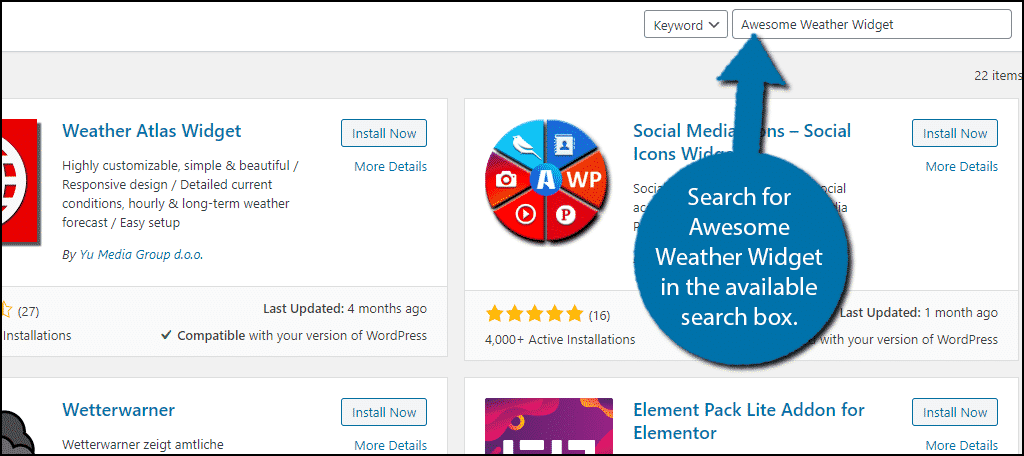
Scroll down until you find the Awesome Weather Widget plugin and click on the “Install Now” button and activate it for use.
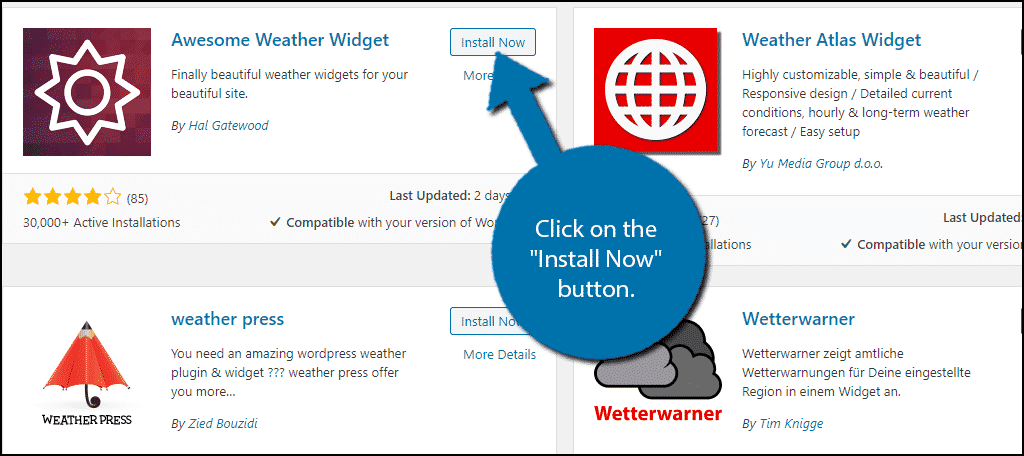
Adding A Weather Widget to WordPress
Luckily, all that you need to do is add a widget. In this case, I will add it to my sidebar area.
Click on Appearance and select the Widgets option.
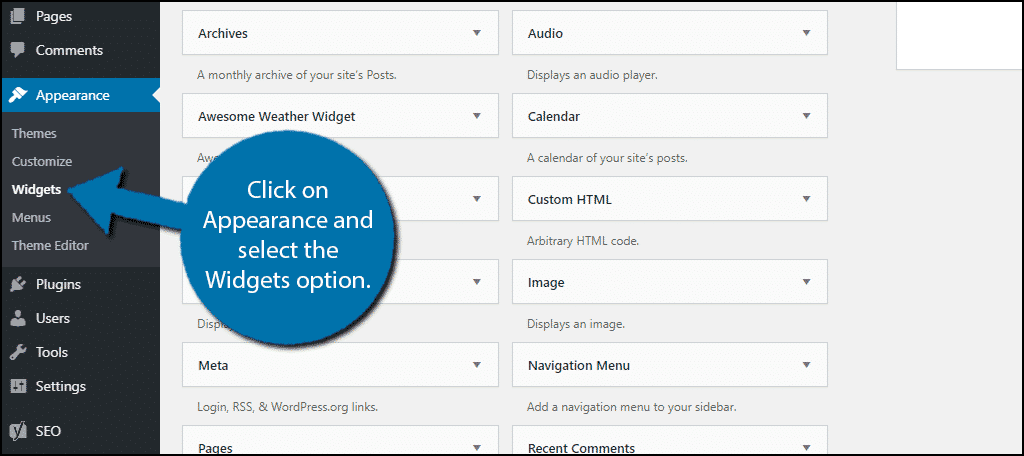
Locate the Awesome Weather Widget and place it into the widget area of your choice.
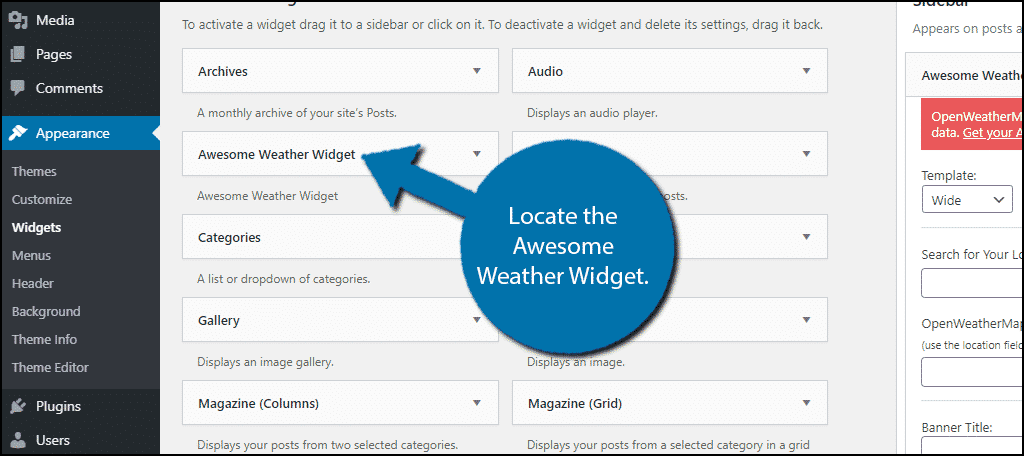
To use this widget, you will need an OpenWeatherMap API key. This is free to obtain. Simply click on the “Get your APPID” link and follow the directions.
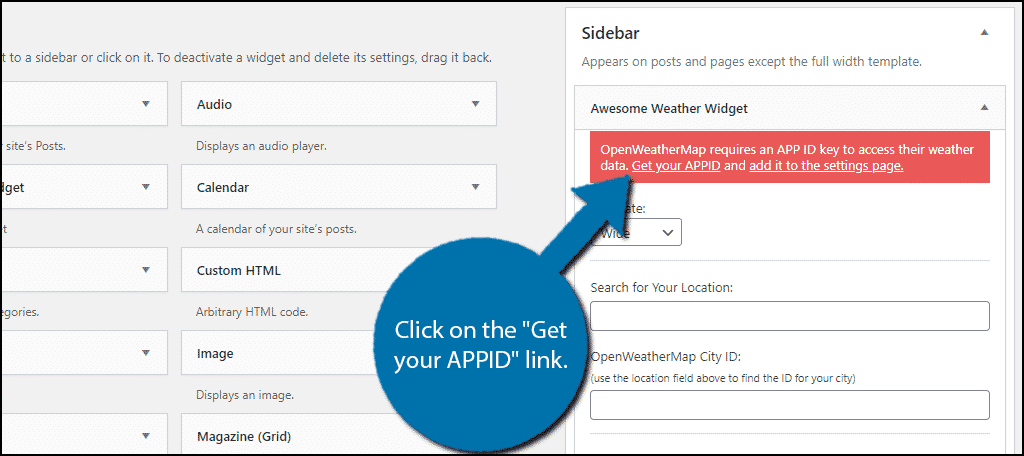
Once, you get the API key, click on Settings and select the Awesome Weather option.

Here you can enter your API key into the appropriate box. Click on the “Save Changes” button when you are done.
Now you just need to fill out the rest of the widget’s settings.
Most of them are to alter the appearance of the widget, and I strongly suggest spending some time customizing the appearance. However, all you need to fill in to get the plugin to work is the location.
Simply type your city into the location box.
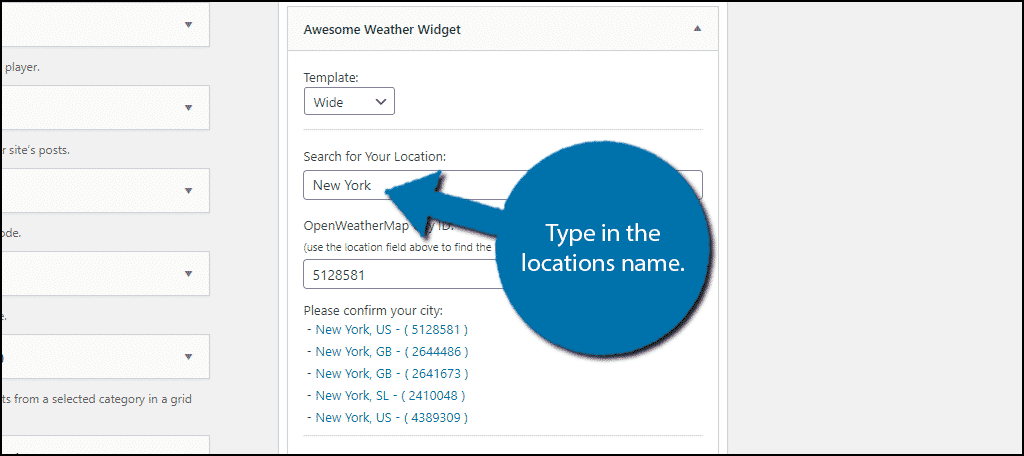
Upon doing so, the widget should display any locations that match. Simply pick the specific option you want.
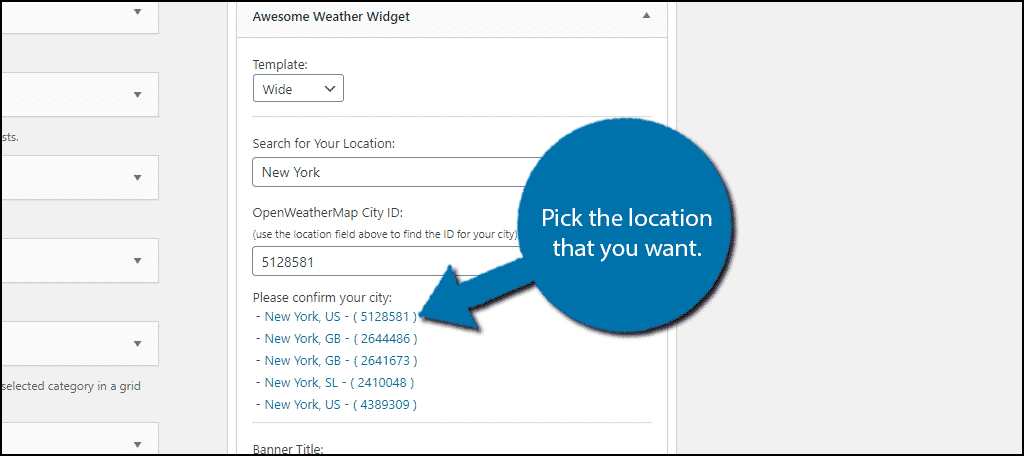
Once you have filled in the location, go through the various setting and customize them to your liking. Save the changes and visit your website to see it in action.
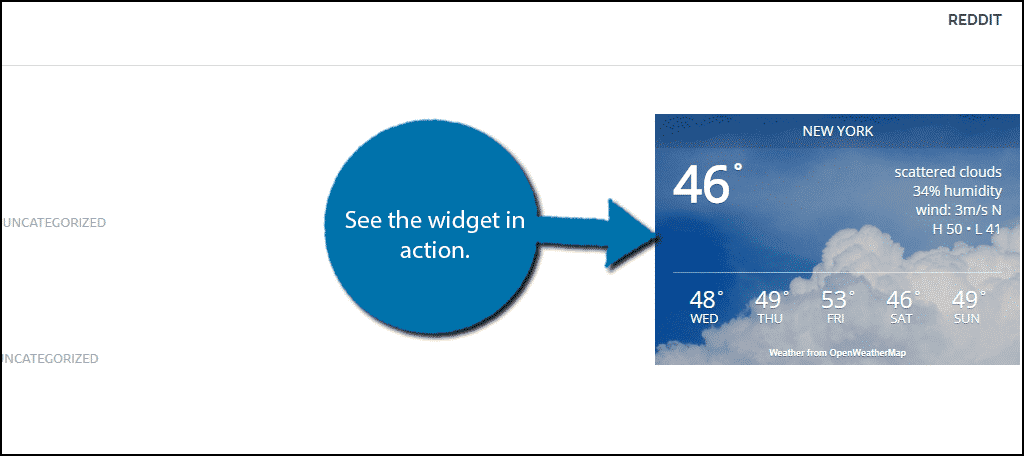
Congratulations, on adding a weather widget to WordPress.
Market Locally
If you run a local business, it goes without saying that your marketing efforts need to stay in your range of operations.
For example, if you own a convenience store, you’re not going to advertise across the country. Adding more local content to your website is a good way to do this. If local SEO is done right, your business should be among the first search result in your local area.
What other types of local content will you add? How do you improve your local SEO?
